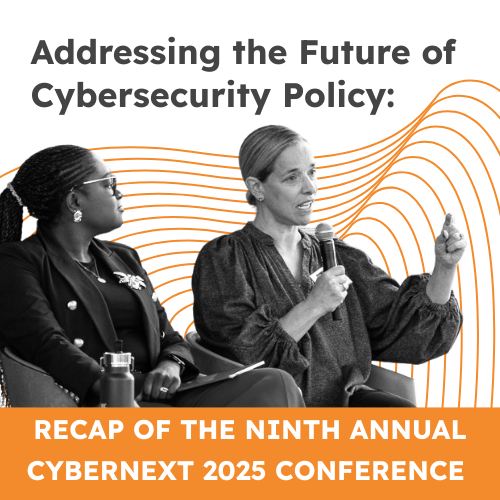Getting Voters Connected: Broadband’s Role in Access to Election Info
Back To News
Why internet access is important for our democracy
If you’re a chronically online political junkie like many of us at Glen Echo, you likely heard about a series of Zoom call fundraisers for VP Kamala Harris with hosts ranging from “White Dudes” to “Swifties.” Maybe you’ve seen the photo spreading online of Elon Musk jumping for joy at a rally for former President Donald Trump. Better yet, you’ve probably noticed how the Harris campaign has capitalized on the VP’s viral moments to appeal to Gen Z voters on TikTok.
Jokes and memes aside, the internet plays an ineffable role in our election process. But imagine if you didn’t have internet access to livestream the recent debates, or if you couldn’t read up on the candidates’ policy platforms with a quick Google search. Worse than that, what if you missed your state’s voter registration deadline or couldn’t locate your polling site, since you couldn’t look it up online?
It’s often overlooked that many Americans still don’t have high-speed internet access, even in 2024 when our lives have increasingly shifted online. According to BroadbandNow, at least 42 million Americans still lack a broadband connection. And the digital divide knows no bounds – it affects Americans of all ages, races, zip codes and political parties. Faced with the demise of the Affordable Connectivity Program (ACP), a federal initiative that provided internet subsidies to over 23 million low-income households, stakeholders across the ecosystem are fighting for an extension and a sustainable funding solution in the long-term through the Universal Service Fund (USF). Glen Echo Group has long been a partner to broadband champions across this space, and our clients like the Affordable Broadband Campaign and the National Lifeline Association (NaLA) continue to advocate for affordable internet for all Americans.
And while we use the internet every day to learn, work and connect with others, it’s also how we participate in democracy and remain civically engaged. According to the Brennan Center for Justice, the integrity of our elections greatly benefits from expanded connectivity. Improved technological infrastructure not only safeguards our election processes, but also helps make voting easier. This is especially important for rural, tribal, unserved and historically underserved communities that have long been left behind and have the most to gain from broadband deployment.
And if you are a voter with internet access, there’s a good chance you are being flooded with election-related content. With an abundance of information ― some of which is misinformation, as you are already well aware if you read our most recent blog post ― it’s hard to know which resources are dependable. We recommend updated voting resources from the University of California National Center for Free Speech and Civic Engagement, an organization dedicated to developing civic engagement on campus and beyond. The Center works with campuses across the UC system and around the country to help young people become more informed about and engaged in our democratic processes. This work requires meeting them where they are ― which, often, is online. They’ve published free voting resources geared towards campus administrators, faculty and students, but the voting information is broadly applicable.
No matter your political alignment or news source of choice, internet access is a necessity, not a ‘nice to have,’ in a healthy democracy. That’s why the Glen Echo Group has been working for years to advance an affordable, accessible internet for all.
To learn how Glen Echo can help support your organization’s broadband public affairs efforts, reach out to us. And stay tuned after the election results come in to hear how the next administration could impact tech policy.

.png)

.png)
.png)